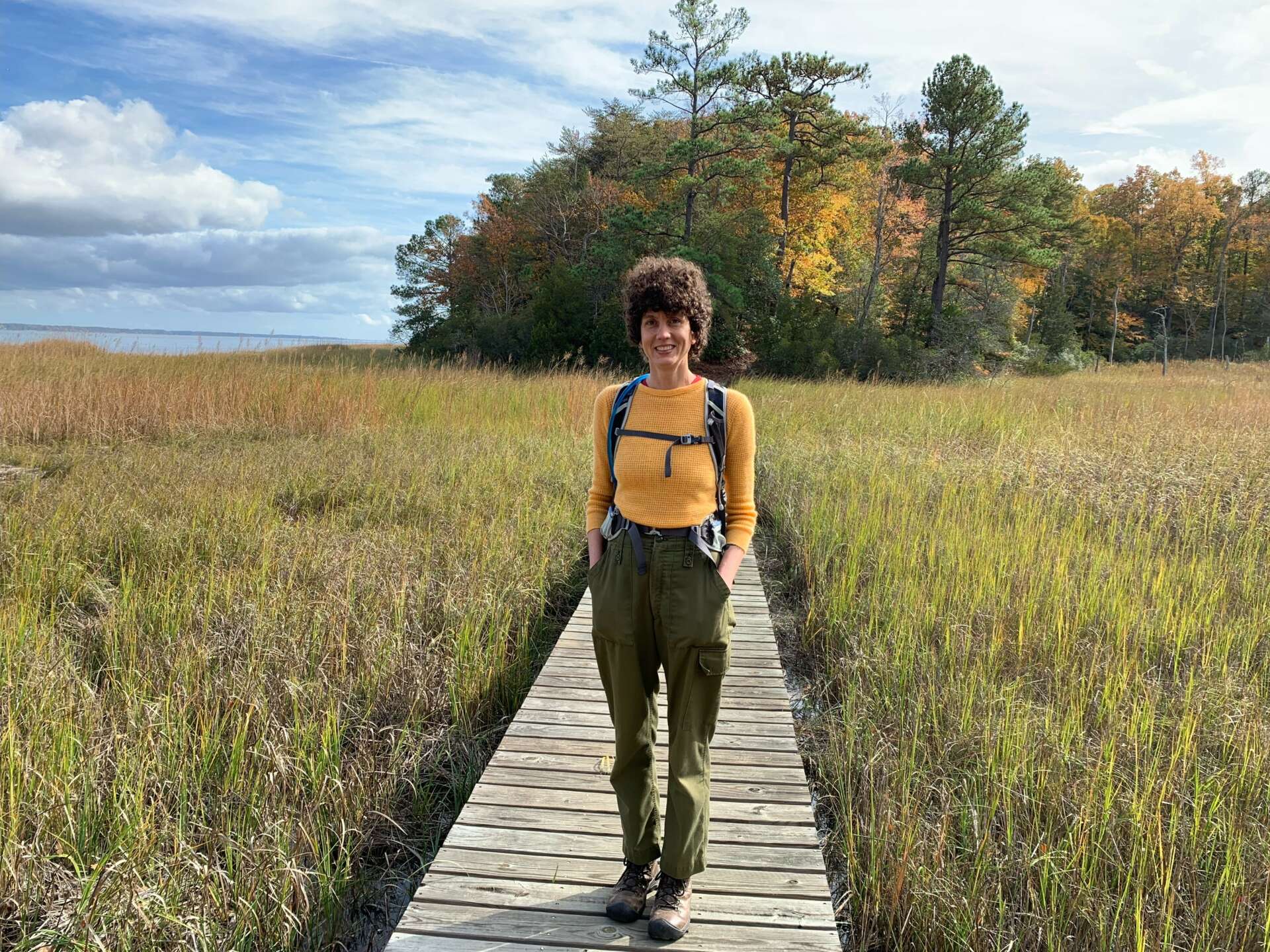We recently connected with Blythe King and have shared our conversation below.
Blythe, thanks for joining us, excited to have you contributing your stories and insights. Let’s start with the story of your mission. What should we know?
Open Space Education is Richmond, VA’s only outdoor education program that combines art education and nature-based learning. Open Space was founded in 2021 in response to the growing need for equitable access to nature, art education, and alternative modes of learning for Richmond youth. The program was created by Director Blythe King, who saw firsthand the positive impact of taking classes outside while teaching during the COVID-19 pandemic.
Recognizing the disproportionate effects of the pandemic on low-income communities and communities of color, Open Space Education formed a partnership with Richmond Public Schools (RPS), where 100% of students are eligible for free meals and 92% are from communities of color. Open Space programs provide access to nature, art education, and alternative modes of learning at no cost to families, doubling the amount of time RPS students spend exposed to art education per week.
Open Space is dedicated to addressing the unequal distribution of nature in America and the disparities in access to visual arts experiences along lines of race and income, particularly for BIPOC and low-income students. Our mission is to prepare students for enhanced success in any endeavor ahead and ensure that every young person has access to the benefits of nature and art education.
Open Space curriculum is based on the inquiry: Are we a part of nature, or are we separate from nature? This question serves as a jumping-off point for students to connect to the natural world and each other through creativity. With a focus on enhancing creative, intuitive, socioemotional, and leadership skills, Open Space Education offers an antidote to increased stress, anxiety, excessive screen time, and reduced socialization by conducting class outdoors.
With the vision of every young person experiencing a sense of place and having access to the benefits of being in nature, Open Space Education is working towards creating a more equitable and connected future for our youth and the planet.
Open Space is supported in part by generous grants from the Virginia Commission for the Arts, the National Endowment for the Arts, the CultureWorks Grants Program, VCU’s Office of Community Engagement, The City of Richmond, NextUp RVA, and Virginia Outdoors Foundation.
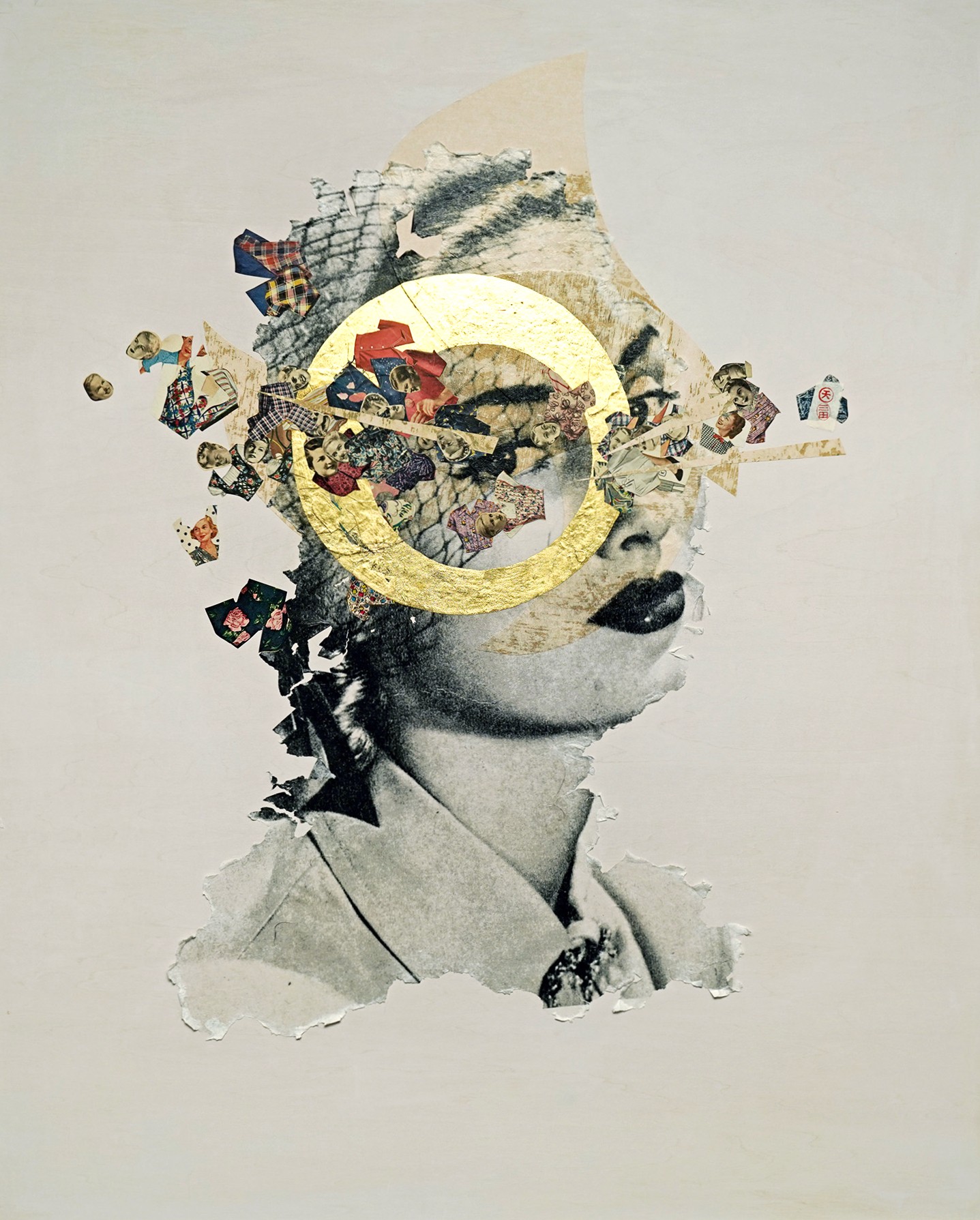
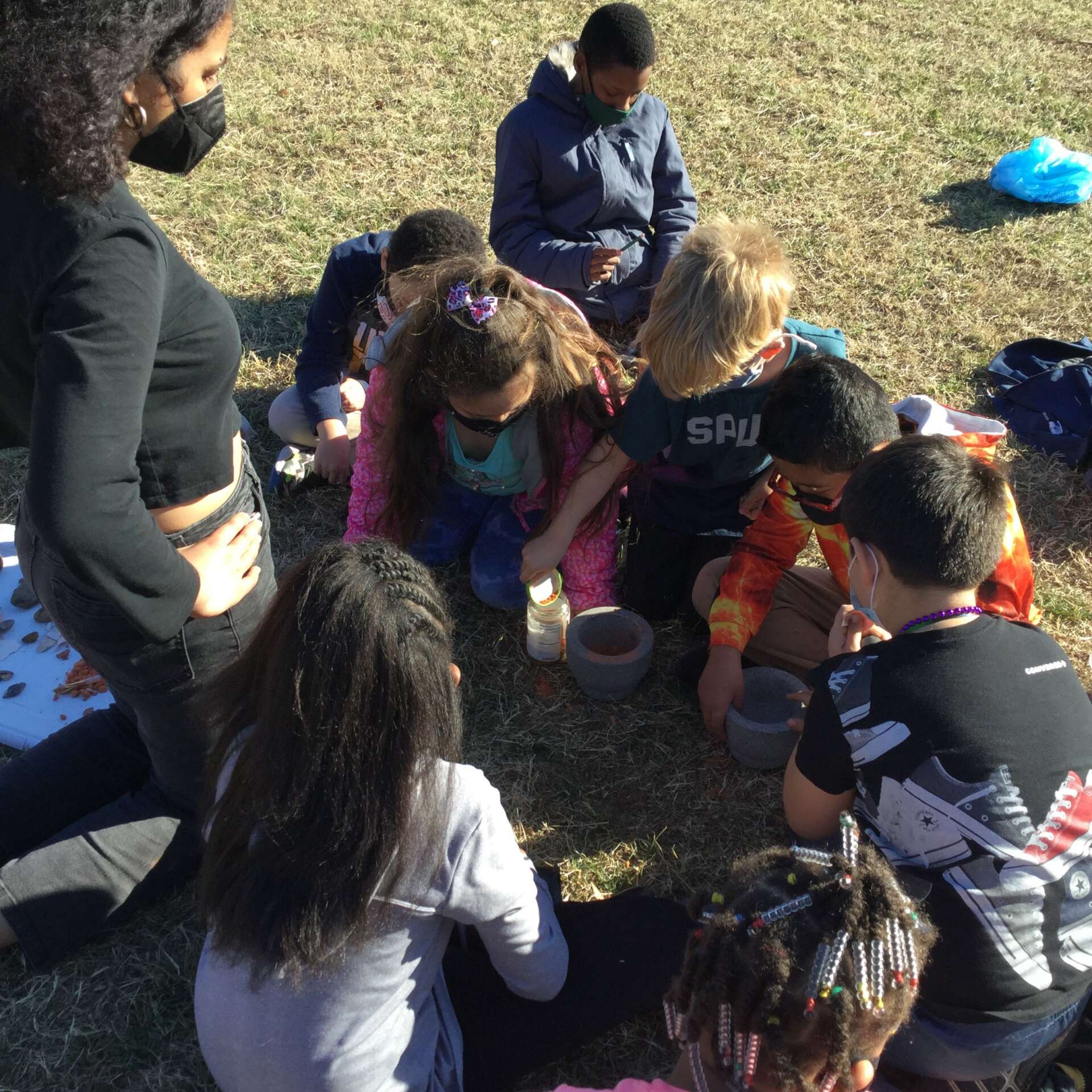
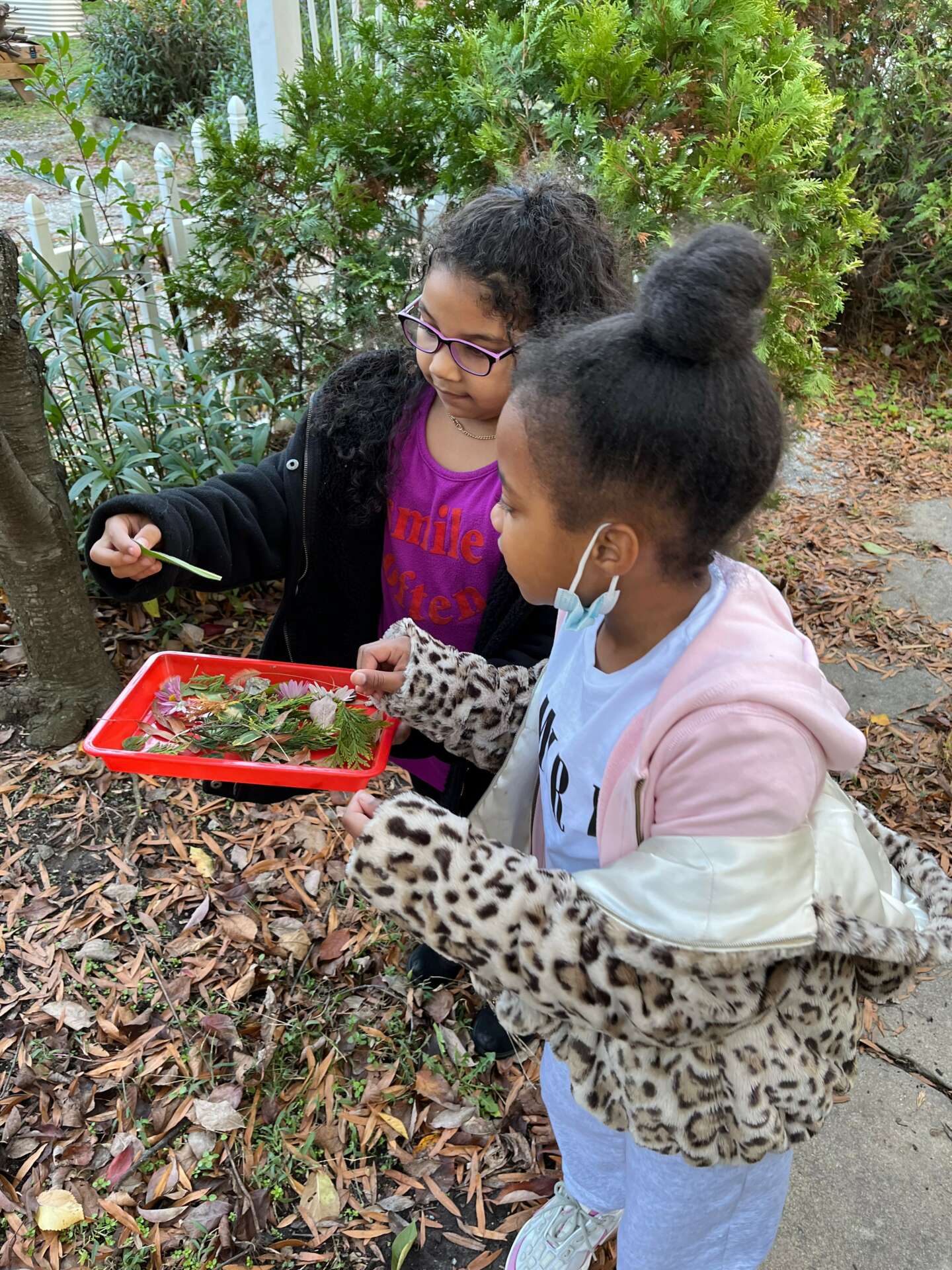
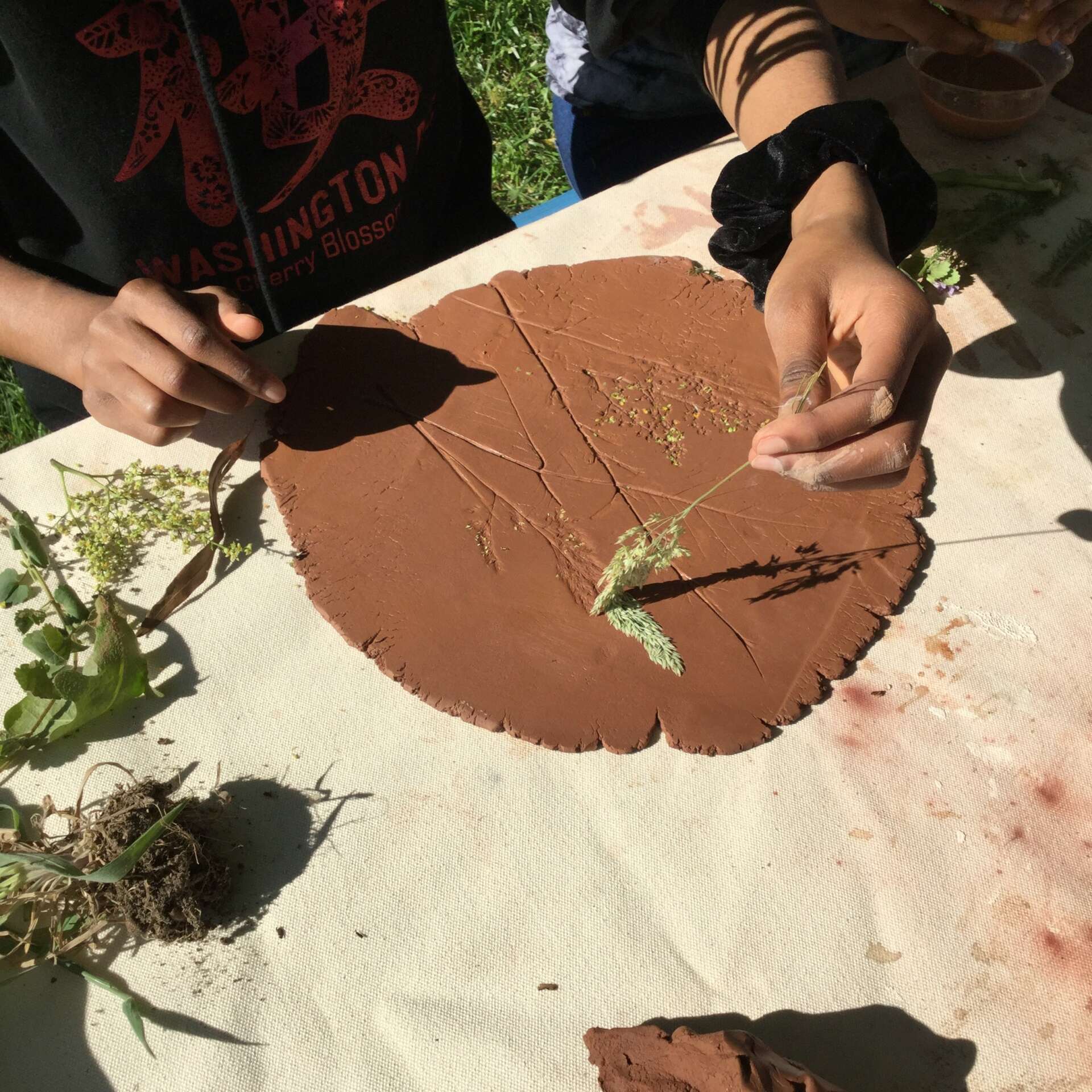
As always, we appreciate you sharing your insights and we’ve got a few more questions for you, but before we get to all of that can you take a minute to introduce yourself and give our readers some of your back background and context?
I lead a diversified life in the arts. I work as an educator, mentor, collaborator, program director, and practicing artist. This rich experience has allowed me to expand capabilities and develop educational offerings that engage communities. I make art accessible to everyone. Since 2013, I’ve served thousands of people throughout the Commonwealth of Virginia. I cultivate awakenings through creative programming. In 2021, I launched Open Space Education to develop artistry, critical thinking, and communications in Richmond, VA youth.
A native of Pittsburgh, PA, my academic background combines an MA in Buddhism and Art from the University of Colorado, with undergraduate studies in Japanese religion and art at the University of Richmond, where I practiced Zen calligraphy with Stephen Addiss (The Art of Zen). This interdisciplinary background informs all of the work I do both inside and outside the studio.
My art transforms nostalgic images of women by rescuing clippings from American mail-order catalogs and comic books (circa 1940-80). I embolden them with elements of Eastern iconography and Zen calligraphy. My subjects are freed from commodification, social expectations, and stereotypes to become divinely evocative multi-layered portraits.
I arrived at my process through experimentation. I combine acrylic transfer, painted paper, magazine clippings, and the ancient art of gold leafing. My techniques are entirely manual. Transparent skins invite us to look beneath the surface of each woman into the many levels of our own interconnected, non-dualistic nature. Surprising connections are made, stories are revealed, and new understandings emerge.
My work has exhibited regularly in Virginia through the Richmond Public Library, Quirk, Eric Schindler Gallery, and the Virginia Museum of Contemporary Art. I’ve also been showcased by the The Griffin Museum of Photography (MA) and the Hillyer (Washington DC). Most recently, I was awarded a 2022-23 Artist Fellowship Award from the Virginia Commission for the Arts.
The educational work I do is inseparable from my studio practice. Just as my art aims to shift perspectives and change culture for the benefit of everyone, my goal as an educator is to show how art can bring attention to important moments in our shared history. Students find it liberating to transform vintage materials through artistic expression. What’s old becomes new again, as they make a new statement. A middle-school student’s parent shared, “Your classes inspired my child to view art as both relevant and accessible.” My experimental approach in the studio extends to my teaching. One parent shared, “My daughter said that the best part of class was being able to be creative without having to make something following an example.”
Currently, my studio practice is rooted in questions raised by my study of American advertising, Buddhist art, the wisdom of nature, and this tumultuous period of history when women’s rights are being restricted and climate change threatens all of our lives. Indigenous scientist Robin Wall Kimmerer’s work finds that the fundamental cause of global warming is disconnection — between each other and with nature. “Reconnection is essential,” she writes, “it is medicine for the earth” (Braiding Sweetgrass, 2013). Through my process, I express that all is connected, despite our feelings of separation.
The wisdom of non-duality springs from my study of Buddhism and my experiences in nature. It influences my work as the Founder and Director of Open Space Education. Open Space curriculum is based on an inquiry: Are we a part of nature, or separate from nature? Students are asked to paint their answer to this question. Nearly every painting, without a prompt, includes trees. This occurrence reveals the interconnectedness of our world and the way that we experience it.
Since Open Space’s founding in March 2021, we’ve offered 36 programs and served nearly 400 students, ages 5-18, 54% of whom are from communities of color, 22% of whom are returning students, and 97% of whom said they learned or tried something new in their Open Space class. After taking an Open Space class, 76% of our students felt more confident, 96% said they had an increased interest in art and nature, and 87% felt inspired to take better care of the earth. One RPS student shared, “This class calms me down and makes me feel better about myself.”
Can you tell us about a time you’ve had to pivot?
A Zen master asked his student, “Where are you going?” The student said, “Around on pilgrimage.”
The teacher said, “What’s the purpose of pilgrimage?”
The student said, “I don’t know.”
The teacher said, “Not knowing is most intimate.”
In the art classes I teach, I often hear my students say, “I don’t know what I’m doing.” And they say it with a self-consciousness, as if they’re doing something wrong, as if they should know what they’re doing. These are mostly middle school students, but some as young as 9-10 years old. My response is always, “That’s good! That’s the best way to work, keep going!” But it strikes me that even at that young age, we’re already conditioned to prefer certainty over uncertainty.
So according to this Zen teaching, if not knowing is most intimate, then our conditioning, be it social, cultural, environmental, genetic, takes us farther away from ourselves and our experience. How do we get close to our experience, get close to whatever we are faced with, and just not know? How can we know, anyway, when we and everything around us is always changing?
Growing up, I never had a clear vision of what I would do with my life. Even in college, I ended up in a World Religions class because I dropped my Chemistry lab and the religion class was the only class available. But I was immediately interested in the subject because I didn’t know anything about it. I wasn’t raised with religion, so in a way, I was more open to studying it.
And the focus on art appealed to me. My professors were artists and art historians, and they taught religion through artistic expression. They deeply influenced the way I teach, as well as my art making process.
This “not knowing” relates to my life experiences in a broader sense, not just my path in academia or the way that I teach. It’s the path my life follows. By being open to possibilities, I’ve been able to see openings and function where I fulfill a need. This includes my experiences as an entrepreneur, artist, and founder of a nonprofit.
My first entrepreneurial venture was the result of needing to protect my iBook while carrying it in my bag in graduate school. In 2004, I taught myself how to sew using vintage sewing patterns. By 2005, I launched a line of vintage fabric computer cases, carving out an improbable niche in a saturated market. Using vintage fabric from old military uniforms, work clothes, and spare yardage gleaned from dressmakers estates, I created simple yet stylish cases tailored to fit an array of computers and portable electronic devices. I was featured on Mashable.com, and in Macworld and Frankie Magazines.
As this trend ran its course, I had a renewed interest in my studio practice. In 2012, I happened upon a 1949 Montgomery Ward mail-order catalog at an estate sale in my neighborhood. As I studied the images, I noticed parallels between the poses, gazes, and hand gestures of fashion models in advertising and deities in Buddhist and Hindu art. My impulse was to reinterpret their roles as divine beings. Through my art, I found a need to offer new ways of imagining women.
Open Space Education was founded on my “not knowing” at the start of the pandemic. As a teaching artist, all of my work was curtailed. But I found an opening. In response to COVID, I started teaching outside. As my 4th-9th grade students studied nature through their art, they started telling me that they noticed a difference outside; they felt more observant and connected. I knew this was something that would benefit a wide range of learners, as so much of the research supports.
I’ve been able to pivot in various ways throughout my career and life by virtue of my not knowing. If knowing is like a wall, then not knowing is a door that opens through the wall. Not knowing has offered me the opportunity to discover the unknown with an intimacy and clarity, enabling me to function appropriately given circumstances that are in flux and ever-changing. I can be fully engaged and open to what the situation will show me.
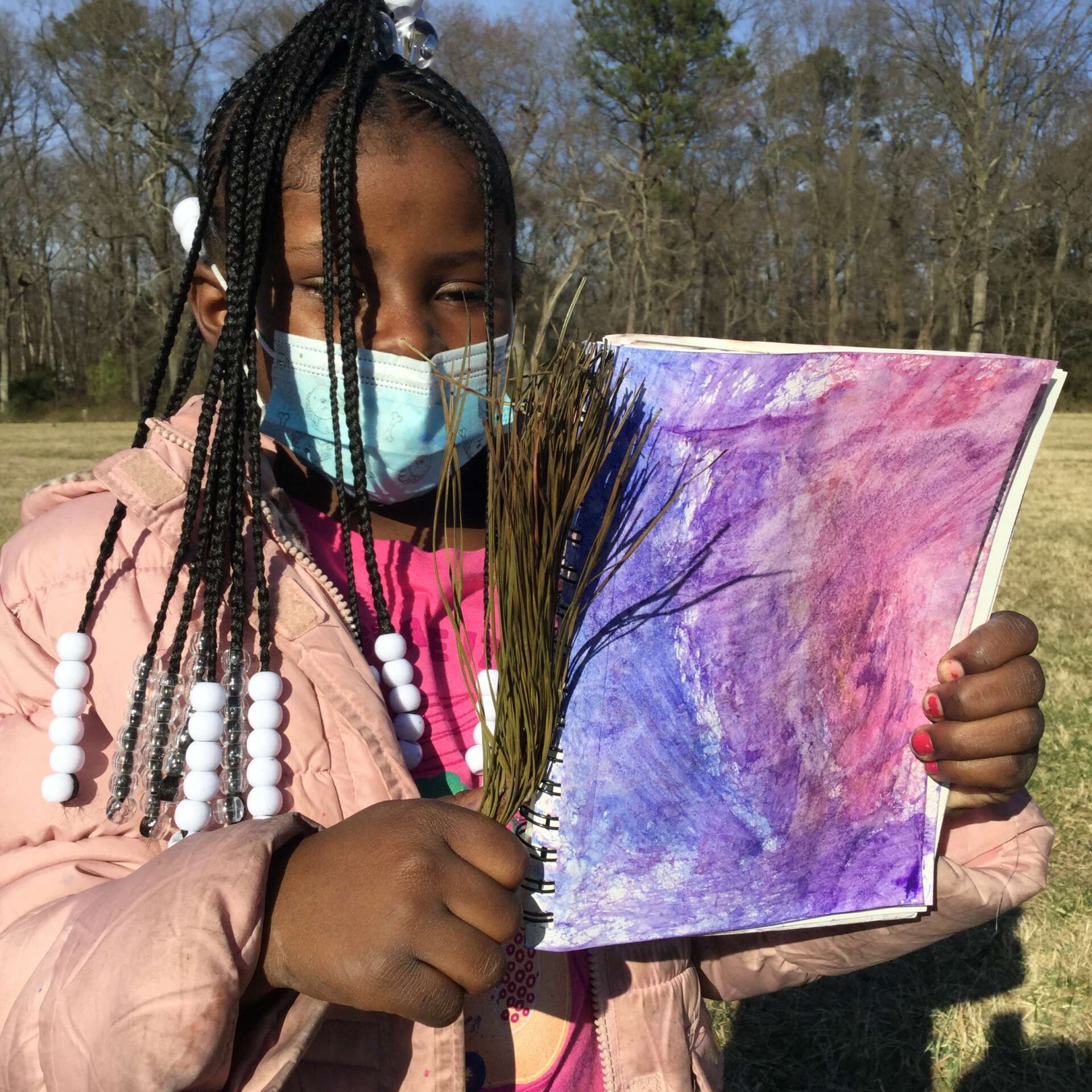

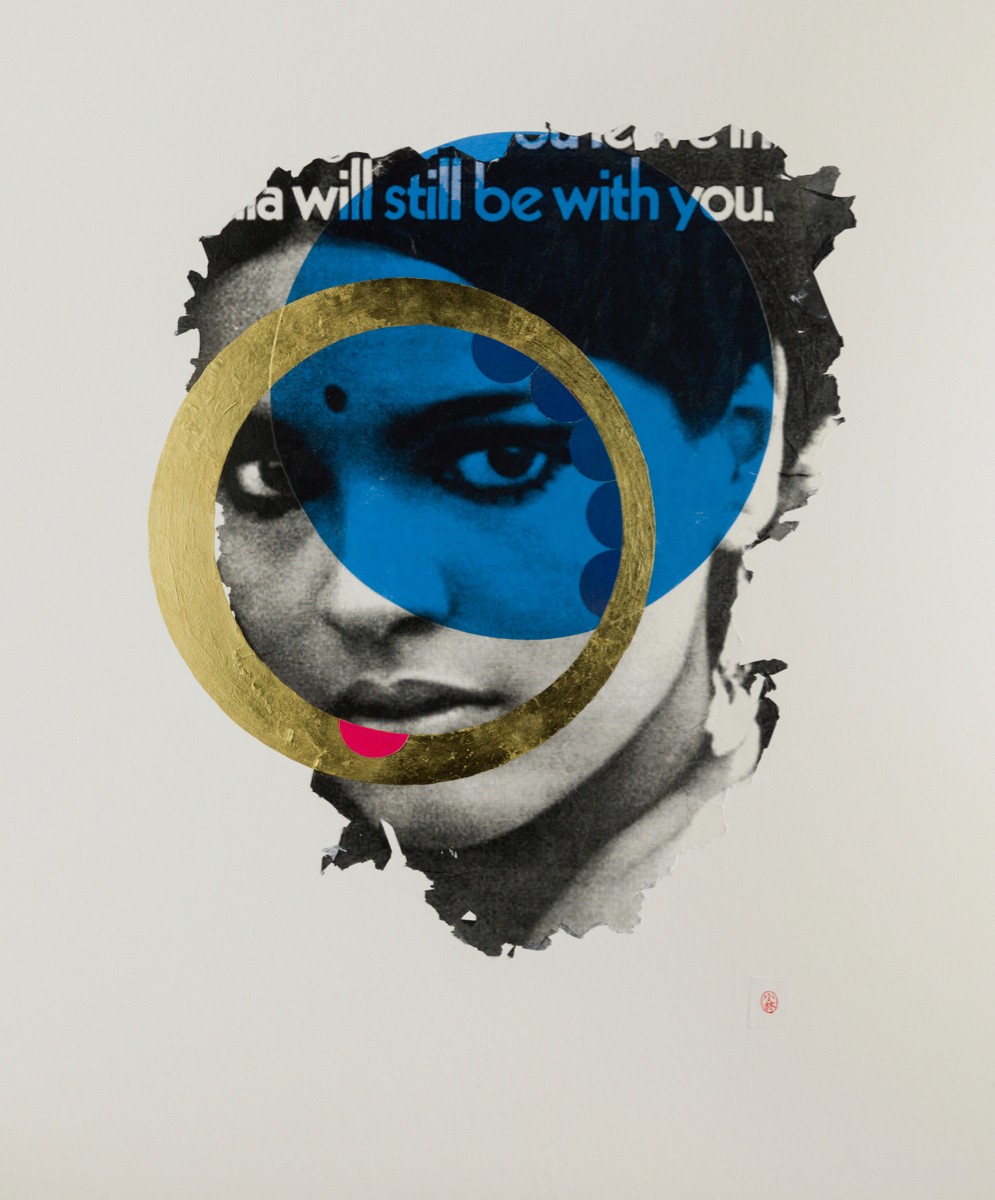
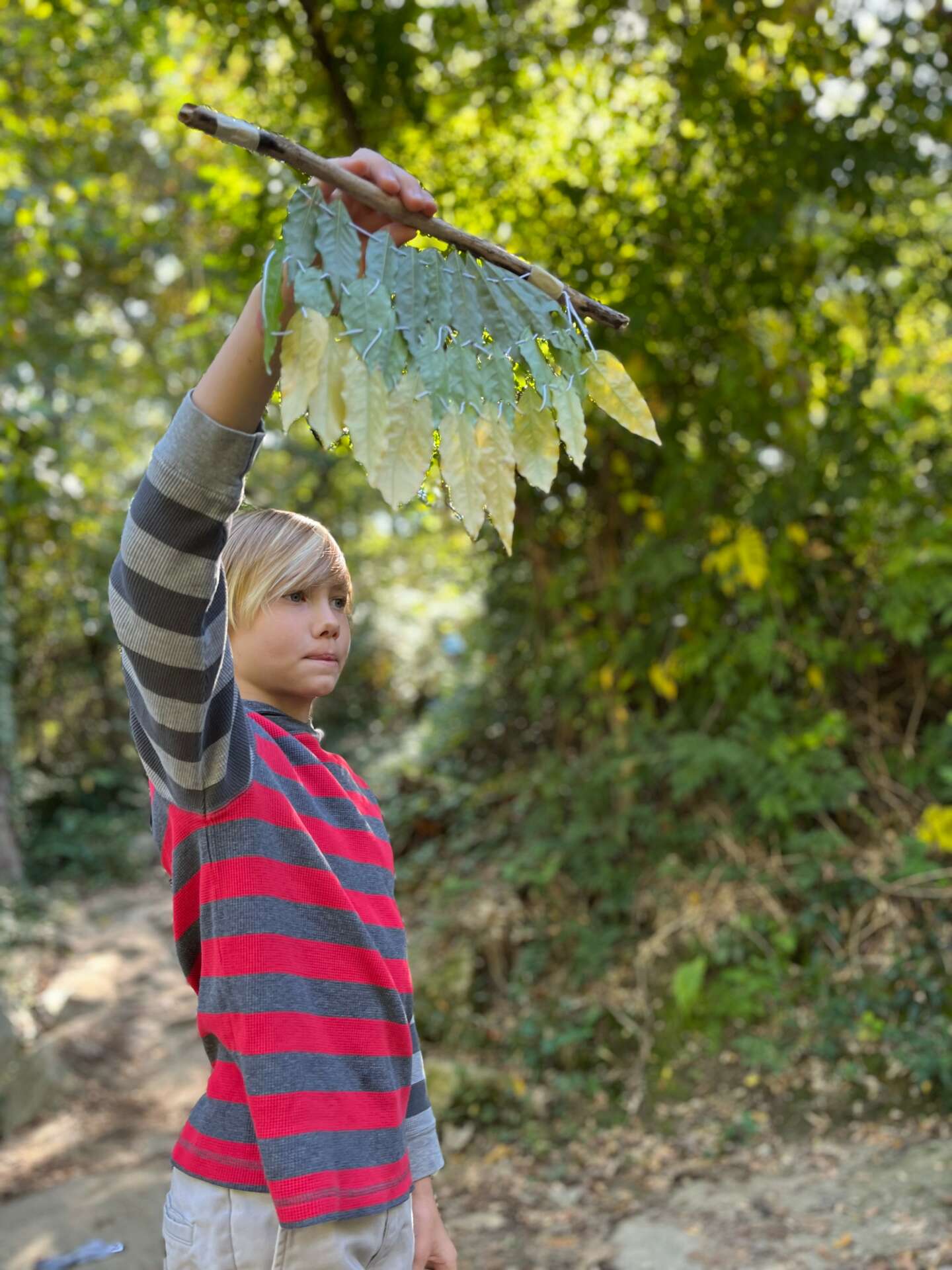
Let’s talk about resilience next – do you have a story you can share with us?
The founding of Open Space Education is a story of resiliency. As schools, museums, and art centers closed at the onset of the pandemic, my role as a teaching artist was curtailed. But I found an opening. In response to COVID, I started teaching outside. As my 4th-9th grade students studied nature through their art, they started telling me that they noticed a difference outside; they felt more observant and connected.
COVID continues to impact Open Space’s ability to offer after-school programming in Richmond city schools. Navigating within a pandemic means ever-changing policy, protocols, and precautions. New COVID variants emerge in the blink of an eye; it is an ever-changing world. For example, as RPS works to keep their students and staff safe, it limits third party providers like us. Furthermore, due to the lack of transportation and RPS after-school staff, schools have limited their in-person enrichment offerings, which impacts our ability to reach RPS youth.
Despite these challenges, Open Space perseveres to offer equitable access to nature-based arts experiences for Richmond-area youth, especially those students who are underserved and lack access to nature. We’ve been successful partnering with RPS schools through their PTAs. In 2022, we partnered with 5 new RPS schools, 3 of which we connected with through their PTAs. The need for creative outdoor time is becoming valued more and more by parents and teachers, and even our congresspeople, who realize the lasting benefits that nature provides.
Contact Info:
- Website: https://www.openspaceed.org/, https://cargocollective.com/blytheking/
- Instagram: @open_space_education, @blythexking
- Linkedin: https://www.linkedin.com/in/blythe-king-b07677b2/


